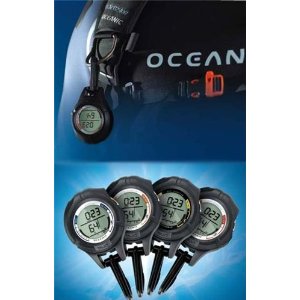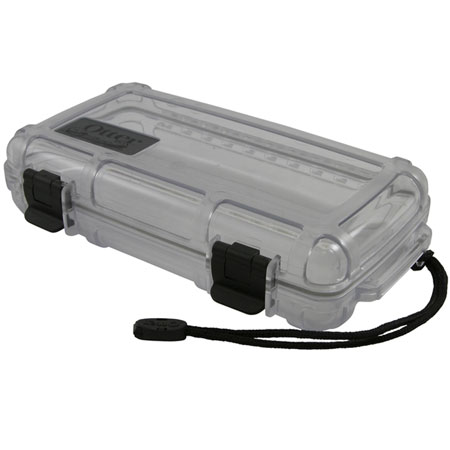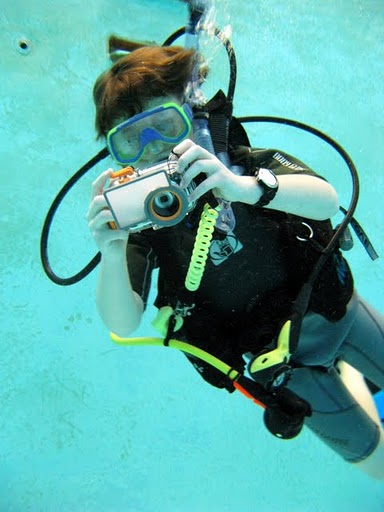
Sunday, October 30, 2011
Tuesday, October 25, 2011
Well Loved Dive Gear For Sale
http://sfbay.craigslist.org/sby/spo/2667584988.html
Friday, October 7, 2011
Vladimir Putin, let's see your Search and Recovery Cert-Card!
Let's critique his technique shall we:
- Poor buoyancy control
- Bicycle kick
- Flailing hands
- Mask on forehead
And what's with that upside down snorkel, and why does he keep holding onto his reg?
Thursday, September 22, 2011
Dive Site Map - McAbee Beach
As part of the Dive Master certification I had to map a local dive site.
I chose McAbee beach, as it's quite an interesting site, accessible to all levels, yet still has plenty to see - from the small stuff like nudi's, to big guys like seal pups, and a kelp canopy.
Download the PDF for more details, history, the map, profile, things to do nearby, etc.
Sunday, September 11, 2011
Back-up Computer
My buddy didn't follow me, smart guy. He stayed on the outside and took pictures. Viz was terrible as we reached about 40ft, so during the ascent I lost sight of my buddy.
None of this would have been a problem normally, but the reason I drifted into the jelly swarm, was a brief spot of distraction as we started the ascent. As I looked at my dive computer to monitor my ascent rate, I noticed all the digits were ... how can I describe it ... doing cart-wheels. No depth reading, no air reading, nothing. Mild panic. I pulled out my console , which has my old air gauge - at least that still showed I had air in my tank, though only 500psi.
Any one of these issues alone and things wouldn't have seemed so bad. Low on air, n.p., buddy separation, n.p., no depth gauges, n.p., but all at the same time along with the jelly ... very annoying.
I had to simply follow my bubbles back to the surface ascend slower than your smallest bubbles. in poor viz and open water you might be ascending slower than your smallest bubbles, or you might equally be descending.
It was a case of bad timing - everything going wrong at the same time.
One thing I am going to fix before my next deep dive is to ensure I have a backup computer. Conversely, one piece of excellent timing is the fact that Oceanic have recently come out with the B.U.D. Dive Computer. A low cost, back-up dive computer that is intended to be attached to your dive gear. As Oceanic says:
B.U.D. is a long overdue idea and a great way to ensure that you never have to miss a dive. Clip it off or stow it in a pocket and forget about it. You should never have to use it, but if you do need it, your B.U.D. will be there to save your next dive.

See it at Amazon.
Wednesday, August 24, 2011
Angler catches scuba diver on fishing line
An angler battled to reel-in what he thought was an enormous fish pulling on his line only to discover it was a scuba diver he had caught by the leg.
I’m not so sure. I’m tempted to call Bullshit on this one. Especially that part about: "I didn't see the diver because he didn't have a safety buoy, which they're supposed to have when they're moving underwater," said Mr Goldfinch.
Thursday, July 28, 2011
Scuba Yoga at La Source Resort Grenada
The resort sounds pretty nice even without the yoga:
http://www.theamazingholiday.com/
Enjoy the combination of yoga and scuba - rejuvenate and improve your diving experience.
The 7 nights program provides accommodation in luxurious ceanview rooms; daily Yoga classes, stress management, pranyama techniques for scuba diving and buoyancy clinic.
Tuesday, July 12, 2011
Kelp Shrimp
Luckily I didn't squish it. I was tempted as it looked like some kind of alien species darting around on the beach in a big puddle.
Tuesday, June 14, 2011
Otter Box
Otter Box (link) makes a cases that, they say, works to 100ft and is suitable for diving.

I wasn't brave enough to take a GPS out on the first dive, so I stuck a tissue in it and took it down to 25 feet at McAbee beach. Tissue came back to land perfectly dry. That's a good sign right!
Just so you know: A GPS unit will not work underwater. GPS (Global Positioning System) devices rely on signals from satellites orbiting the earth. The signals from the satellites cannot be received underwater. So my plan isn't to have the GPS unit track my dive under water, that won't work! I just want a way to have the GPS with me underwater, so that when I get to an area of interest I can reel the GPS up to the surface, get a GPS fix, then reel the GPS back down.
I have a nice little Garmin 401 GPS, which fits nicely into my Otter Box. I think it's safe to take it with me on the next dive trip.
- Otter Box Waterproof case: $20 REI
- Garmin 401 'Hiking GPS': $150 Amazon.com
Wednesday, May 25, 2011
REEF Fish ID seminars online
Great for first-timers or those wanting a review. These short, free webinars will teach you the finer points of identifying our local fish and invertebrates underwater.
What is REEF?
Reef Environmental Education Foundation (REEF) was founded in 1990, out of growing concern about the health of the marine environment, and the desire to provide the SCUBA diving community a way to contribute to the understanding and protection of marine populations. REEF achieves this goal primarily through its volunteer fish monitoring program, the REEF Fish Survey Project. Participants in the Project not only learn about the environment they are diving in, but they also produce valuable information. Scientists, marine park staff, and the general public use the data that are collected by REEF volunteers.
See: About REEF
Friday, April 29, 2011
Seafood Watch Web App
http://mobile.seafoodwatch.org
A page from the Monterey Bay Aquarium to bookmark on you smartphone.
The Seafood Watch page contains the latest information on sustainable seafood choices available in the US
Monday, April 11, 2011
Artificial Reefs Around the World
Subway cars, naval ships, tanks and more rest on the sea floor, making homes for sea life and attracting divers. Artists have been busy as well, erecting underwater sculptures and memorials.
http://www.theatlantic.com/infocus/2011/04/artificial-reefs-around-the-world/100042/
Tuesday, March 22, 2011
Discover Scuba Diving - For Free!
Curious about scuba diving? Ever wondered what it’s like to breathe underwater? Well next Monday, you get to find out. Discover Scuba Diving will let you try scuba to see if you like it.
Come and learn the scuba basics under the direct supervision of a PADI Professional. Learn that you really can breathe underwater!
You have to be 10 or older to try Discover Scuba Diving, so by all means, bring a family member. Kids love to scuba, just ask Ben.
During the Discover Scuba Diving experience you’ll learn how to use scuba equipment in the pool and get a quick and easy introduction to what it takes to explore the underwater world.
Email me if your interested: ukdiveboy@yahoo.com
More info: PADI Discover Scuba Diving
Monday, March 21, 2011
MEMS sensors: When GPS is not enough
MEMS sensors: When GPS is not enough
There are many existing approaches to derive location, direction and movement as they relate to pointing, steering and guiding equipment. In fact, it has become common for many applications to rely on GPS. But when it comes to navigating indoors and addressing more complex and environmentally challenging scenarios, GPS alone is insufficient...
Wednesday, March 9, 2011
Great Dive Site Description for Breakwater
Breakwater Grand Tour Description
If you're a Bay Area diver, that Yahoo! Group has some great info on it:
Saturday, February 26, 2011
All we are saying, is give sharks a chance!
http://www.projectaware.org/givesharksachance
The only other thing we ask, is that you stop eating shark fin soup. Have a nice bowl of minestrone.
Thursday, February 24, 2011
Save the Sea Otters
Our sea otters are in trouble -- and there's a simple thing we can do to help them survive: support the California Sea Otter Fund when we pay our taxes this year.
In past years, the California Sea Otter Fund has helped to fund programs to assist in protecting countless sea otters in the state. But 2011 is your last chance to make this life-saving gift on your tax return.
The Franchise Tax Board will expire the Fund after this year, unless it both reaches this year's target amount of $260,890 and legislation, just introduced by Assemblyman Bill Monning (D-Carmel), passes to extend the Fund starting in 2012.
Learn how you can help save sea otters.
Donating is easy! We can donate as little as $1 (just look for line 410 on your 540 tax form), so it won't break our banks to give our sea otters a new lease on life.
The California Sea Otter Fund supports researchers doing important work to recover threatened sea otters in California.
The tax check-off funds raised since 2006 are helping to support a long-term study of the threatened southern sea otter population. The goal of this research is to determine how sea otters are affected by high levels of chemical and pathogen pollution that occurs along developed areas of the California coast.

